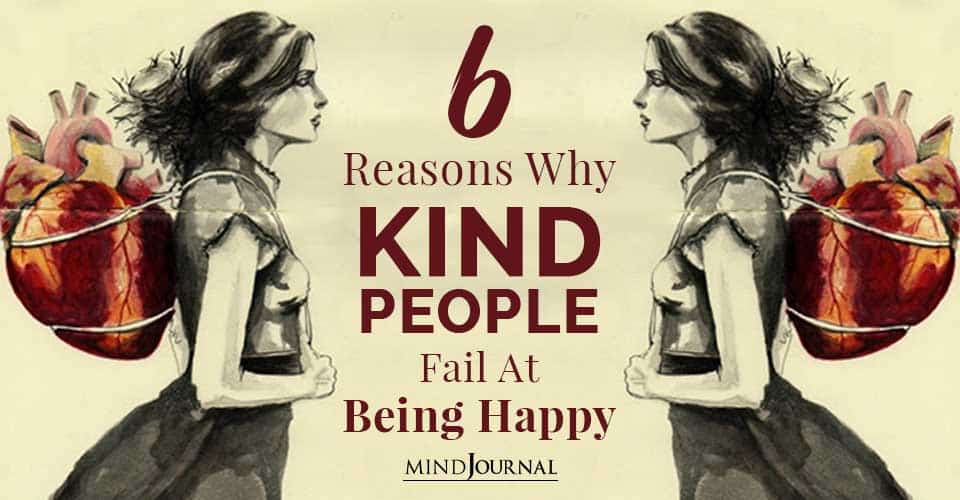Kindness is an invaluable virtue to have, but it can also be a bane too. And kind people tend to get the rough end of the stick, more often than not.
The most beautiful of all souls, the kind souls decorated with a smile accompanied by a soft voice may seem to appear very happy but are they really?
Helping others and always being there doesn’t actually make you a happy human. Happiness doesn’t always come from giving, and kindness is not really the path to bliss.
I will explain to you why-
1. They too have desires.
Kind people don’t kill their desires. Like everyone else kind people too have multi-faced personalities. There are certain things that satisfy your soul. What gives you happiness depends upon the desires hidden within you.
Always giving doesn’t assure that you will stay happy, of course, the smiles and blessings will bring a light of joy in your heart but you aren’t content, you will feel something inside is missing. The moment when you’re alone that happiness will start to fade because then you will be looking for what your soul desires.
Related: 20 Truths About People Who Are Too Anxious, But Also Too Kind
2. Giving too much.
Kind people give and they stop at nothing. They keep giving even when they are already stretched too much. Sometimes they get into trouble by giving away too much, they forget they have needs too and every time they walk the extra mile to help others, they leave themselves in mess.
They don’t expect anything in return for their kindness, that’s how it’s supposed to be but they lose check of when to stop. This fills them with happiness for a while but in the long run, they desire something in return, they expect to be returned and shown the same kindness which eventually leads to disappointment.
3. Expectations of fair treatment.
Kind people are givers; they put in their time, efforts, and emotions to give into the world. One who gives to the world also expects the same from the world at a charitable level and this is where they face disappointment.
The world is very unforgiving and it isn’t as kind as the kind people think it is. This often saddens them and makes them hopeless.

4. Making sacrifices.
People who give work harder, they put in the best of their time and effort to get things done. Kind people sacrifice their sleep, and often important work just to help others and make them happy.
Nothing stops them from giving, sometimes they are their own enemy.
5. Lack of self-satisfaction.
Kind people are not satisfied with themselves. There is only so much kind a person can contribute to society. They get depressed when their resources don’t meet their ability to help others.
They work harder just to make sure they can extend their hands to help anytime. They always desire to give more.
Related: People Who Read Are The Nicest, Kindest and Empathetic, Research Reveals
6. Overthinking.
Kind people are intelligent and we know intelligence is accompanied by depression. Kind people are mostly intelligent and these two powers come with an unwanted gift, sadness. Sadness is a result of their brainpower.
When kind people are not helping others or not doing any work they overthink. They analyze the socio-political condition of the world and think of all the sufferings and depress themselves. They also introspect a lot and most of the time end up concluding they are not good enough.
But kindness is not all about how we feel or what we get, it’s more about the emotional raise we get. Raising our vibration and sending the good vibes out there in the universe. Kindness doesn’t reward you immediately but does remember what we send out in the world is what we receive, there will be lows and high but the universe will always be in your favor.
Your act of kindness pushes the world one step ahead in the right direction.
Keep up your good work and never give up. The light you carry in your heart is what keeps the world illuminated, keep spreading the love, and remember you will never fail.
If you want to know more about kind people, then check this video out below:











Leave a Reply